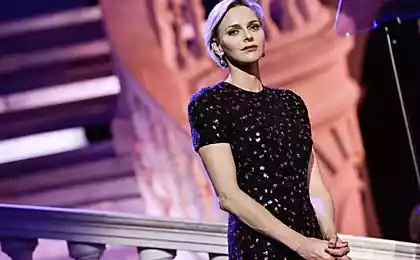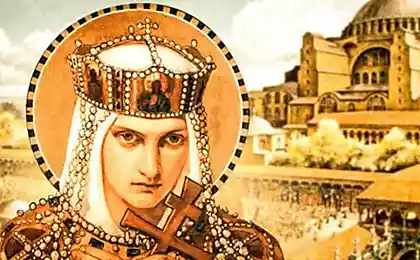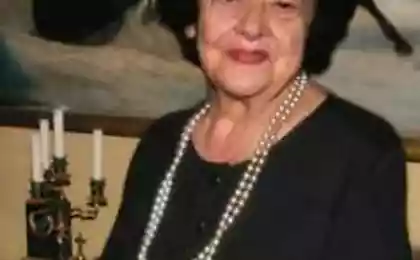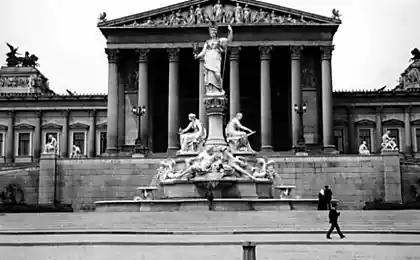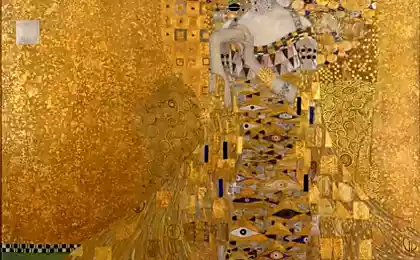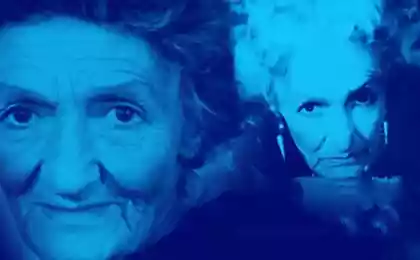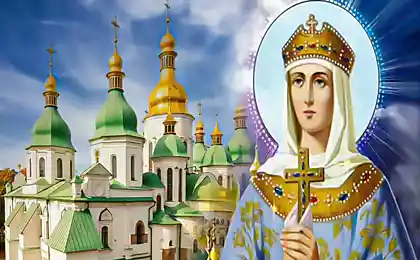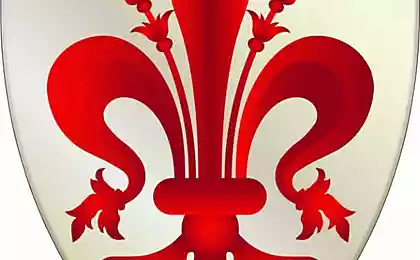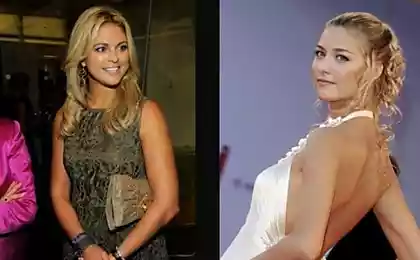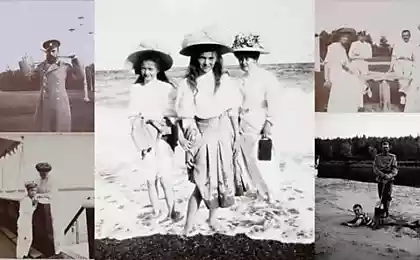917
Grand Duchess Maria Romanova: don't cry, everything will be OK...
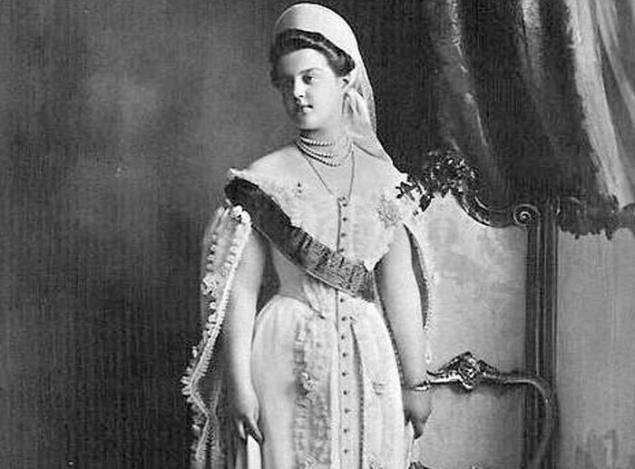
Maria Pavlovna Romanov, Grand Duchess, cousin of the last Russian Emperor, the representative of one of the most brilliant dynasties... it would Seem that this woman had everything to be happy and prosperous life. But fate has never been merciful to her.
There were no such troubles, which have not had a chance to experience Mary: the death of the closest people — parents, children, relatives and friends, threat of disease, resentment, humiliation, war, famine, tribulations in exile, dire poverty and drudgery. But she never bent under the blows of fate, leaving my heart open for love and goodness. Whenever the meaning of life and source of livelihood would be gone, and Maria Pavlovna has found a new...
She was born April 6, 1890 in the family of Grand Duke Paul Alexandrovich, youngest son of Alexander III, the most beautiful of the great princes of the Romanovs. Newborn's first appearance in public occurred in a gilded carriage, which drove three pairs of white horses. The carriage was escorted by mounted hussars in the dolomanov. So the girl was taken to the Winter Palace for baptism. She was called Mary as a grandmother, the wife of Emperor Alexander II, and as her aunt and godmother, wife of Alexander III, at the end of the reign which she was born.
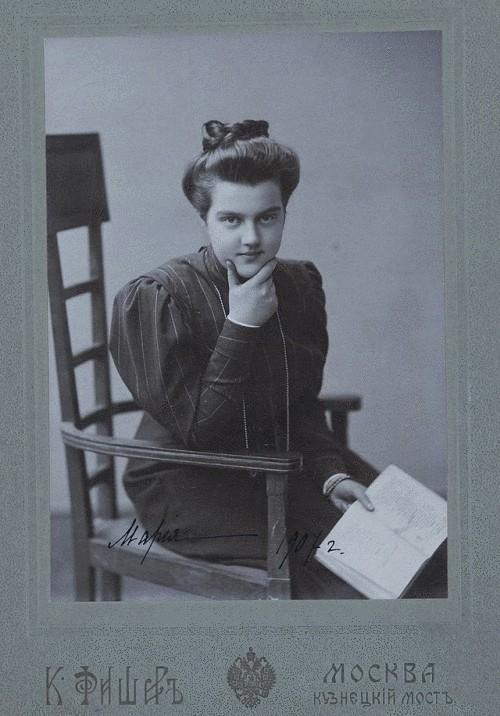
Losing a year and a half, the mother, the Greek Princess Alexandra Georgievna, who died in childbirth of a son, Grand Duke Dmitry Pavlovich, Maria was brought up in the family of his uncle, Grand Duke Sergei Alexandrovich, Governor-General of Moscow, and his wife, aunt Ella, what was the name of her children, Grand Duchess Elizabeth Feodorovna. Their children have not been since they lived in spiritual marriage.
"All the long years of childhood I spent in the four walls of many palaces, recalled Maria Pavlovna. — I deliberately kept ignorant of high standing, belonging to me by birth. In contrast to the pomp and luxury that surrounded me, I was treated simply. The same simplicity was required of me in relationships with other people, especially inferior. I was taught humility and modesty as a Christian virtue, order, discipline, and self-control as civil skills. I had to humble obedience. I was deprived of all freedom, any manifestation of will or personal initiative immediately suppressed".
However, despite such education, Maria Pavlovna grew lively and proactive, listening only to the dictates of his heart. She was simple and natural in communication. By nature cheerful and energetic, the Grand Duchess contagious laughed heartily, often breaking the stiff ceremonial of the court, famously ruled with a rogue horse no worse than guards officer, was fond of rifle shooting, and playing hockey.
At the wedding, held in Pavlovsk in 1908, Maria Pavlovna on the old tradition of wearing jewellery that belonged at the time to Empress Catherine II: diamond tiara, necklace and earrings. They were so massive, that it wasn't enough to put them in your earlobes, and it was necessary also to secure a special gold wire, wound it around the ears. But it's already stood the new, twentieth century, and Mary Pavlovna, unable to withstand the severity of the Catherine earrings, took them off and just hung on the edge of the glass ...
... Despite the fact that the Grand Duchess had recently married, she wasn't the bride. It was not felt no joy, no fun. On the contrary, she seemed sad and preoccupied. Her husband, the Swedish Prince Wilhelm, was ugly, tall and stooping, with huge, projecting sideways mustache. He was laconic and didn't look too happy. The interests of the two dynasties was unable to consummate the marriage. Although in the area of Stockholm rose, a romantic castle young gift from aunt Ella, in their relations there was very little romance. Spouses are not brought together even the birth in 1909, the son of Lennart. And four years later followed by a divorce of the spouses crowned. Maria Pavlovna returned to Russia, but without the son, under the terms of the divorce, he as the heir to the throne remained in Sweden. Growing up and getting to the crown or love, Lennart has made a choice in favor of love and marries the daughter of a manufacturer losing the right to become the Swedish king...
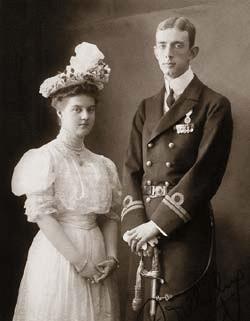
At the outbreak of the First world war, the Grand Duchess went to the nurse at the front after regiment, where he served as her brother. For two and a half years, she faithfully worked in the Pskov military hospital. Sometimes Maria Pavlovna fell from fatigue, the sleepless nights and the endless spectacle of suffering. After her brother Dmitri was sent to the border with Persia for participating in the murder of Grigory Rasputin, she wrote the Empress a letter in which he expressed full solidarity with brother and resented the separation from him. But if she knew what tests she would soon have to go!
The catastrophe of 1917 coincided with the first love of the Grand Duchess. In September, in Pavlovsk, she was married to Prince Sergey Palatinum, whom he knew since childhood. Then disappeared without a trace entire families. Arrested the father and brother of Maria Pavlovna Vladimir Paley from a morganatic marriage of her father with Olga Karnovich. Over the bride and groom under threat of arrest and execution. But they could not leave Russia — Maria Pavlovna was pregnant. Barely a son named Roman, was born, the parents left his family and went to Romania. There, in Bucharest, they learned about the shooting of Grand Duke Paul Alexandrovich and his tragic death in Alapaevsk, Vladimir Paley and the pet of the family — the Grand Duchess Elizabeth Feodorovna. And in Paris, where he moved a young family, they were overtaken by the news of the death of one year old son...
"We got booed off the stage as she was in a fabulous dress, wrote Maria Pavlovna. Now it had to change, make different, casual clothes and, most importantly, to learn to wear it. ... When the crumbling social system and a whole class of people removed from the scene and literally deprived of a roof over your head, life not in a hurry to shelter them, take care of them... Life showed sharp contrasts: a rash of hopes and disappointments, the ashes of the gone belief and a gradual building of a new, independent, of their world. We have tested our abilities to the limit, we've done the impossible. But to stand the test — it was a new delicious experience..."
In Paris Maria Pavlovna, which has long sewed my own clothes, beginning to knit and sell their wares, but earning a pittance. She remembered the lessons of applied art, which with enthusiasm was engaged in Stockholm and bought an embroidery machine. Firm Grand embroideries called "Kitmir".
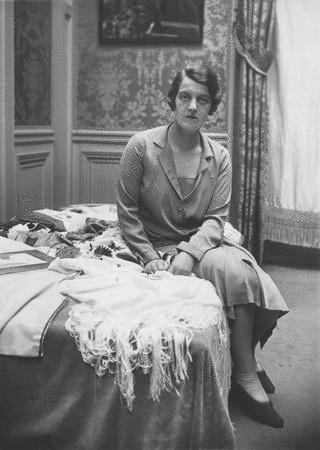
Maria Pavlovna the day did not go out of the room, shot her workshop, usbdrive a cheap coffee. First she helped three embroiderers, and most of the work she did herself. Maria Pavlovna the cost of enormous effort and hard work managed to succeed: fine embroidery of the Grand Duchess was fascinated by Paris. And even the famous Coco Chanel. The Queen of Parisian fashion, seeing Russian embroidery, not speaking for a long time, suggested to the Grand Duchess cooperation. Enterprise Maria Pavlovna was developing, at one time the firm had employed fifty workers, mostly of Russian emigrants. And the name resounded throughout fashionable France. Grand Duke Dmitry Pavlovich, the brother of Maria Pavlovna, was a lover of Chanel, but then married a rich American woman and went overseas.
And in 1930 she and Maria Pavlovna went to America, taking with him a typewriter and a guitar. She had no shortage of ideas on how to earn money. For several years, she worked as a consultant in the firm of fashion clothes "Bergdorf and Goodman," and also traveled around the country giving lectures. It sent a reporter to Germany, and in 1935 she suddenly became a photographer, focusing, in particular, colour photograph, which in those days was a rarity.
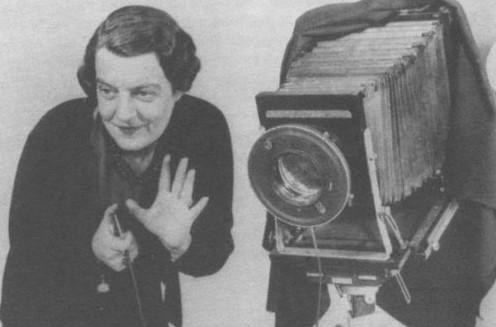
Maria Pavlovna also began to collect books, and in new York, she was fortunate enough to buy books, once belonged to her father. Spent some time in Argentina after the Second world war she returned to Europe, where he took up painting. She managed to sell a few paintings. Having mastered driving a car, she toured Europe, sending in the Paris edition of photographs and travel essays. In the trunk of her car in addition to suitcases with things you can detect the cases with two cameras, typewriter and embroidery machines, used with paints and a huge number of books.
In his later years Maria Pavlovna was sorry about what was lost to her, but emphasized that trials and tribulations have given her a great lesson. And above all else she valued the love for the Motherland. "It's a deep feeling instilled in me by my family, she wrote. — In his great deeds, and even his mistakes all the generations of the Romanov put the interests and glory of Russia above any personal gain. For her they were always ready to sacrifice everything, and they proved it by his life." Deeply devout, the Grand Duchess prayed to the spirit of the Romanovs supported her until the end of days...
In December 1958, Maria Pavlovna, who suffered by that time, strong sclerosis, died from pneumonia in the border town of Konstanz in Germany, near the Mainau island. Son ordered to put her coffin in a private chapel in the crypt of the Palace Church of Mainau, next to the ashes of brother Dmitri, at her request, moved here from Davos. The memoirs of Maria Pavlovna, who became famous in the West and translated into several languages, was published in Russia in 2003.
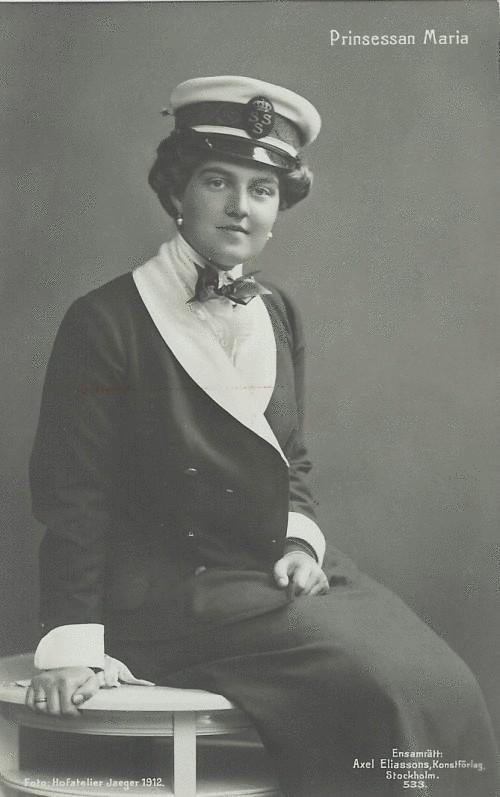
There is hardly a lot of royalty, which, being thrown into the harsh daily life, whenever you find any unconventional solution. The resilience and resourcefulness of Mary Pavlovna was really unique. As a true Romanov, she couldn't give up without a fight and forbade myself to fall. She never succumbed to despondency and self-pity. "No Romanov to cry" — these words aunt Ella, Elizabeth Feodorovna, said at the funeral of Sergei Alexandrovich, who died at the hands of the bomber, she often thought. Once in exile in Paris, he saw a rich lady's dress, embroidered with her own hands, Mary Pavlovna could hold back the sobs. "Don't cry, Mademoiselle, it is all arranged," said her older taxi driver... published
Author: Elena Erofeeva-Litvinsky
Source: www.matrony.ru/velikaya-knyaginya-mariya-romanova-ne-plachte-vse-ustroitsya/


